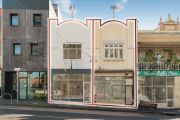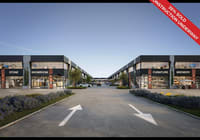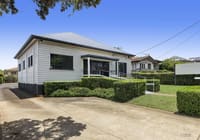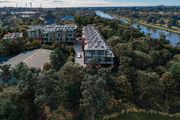
Vicinity's Grant Kelley rides the delta as rates fall
Falling bond yields and low rates – which hit a new record low on Tuesday – have been a boon for Grant Kelley as he steers shopping mall giant Vicinity Centres through challenging times in the retail sector.
As the returns from risk-free money diminish, the yields from property stocks, including Vicinity, look more appealing. Amid all the noise around retail real estate in the past year, Mr Kelley has been buoyed by some simple numbers.
“Our market has priced in two rate reductions and possibly a third from the RBA,” he told The Australian Financial Review in the lead-up to Tuesday’s historic 25-basis-point cut by the cental bank.
“That is very good news for REIT stocks because right now we are trading at about a 6.2 per cent dividend yield.”
Vicinity’s yield contrasts with the risk-free yield on 10-year Australian government bonds, now around 1.5 per cent after falling steadily over the past year.
That gives Vicinity’s yield a “delta”, as Mr Kelley puts it, to risk-free returns of well above four per cent.
In its reasoning for Tuesday’s rate cut the Reserve Bank noted that in Australia, long-term bond yields are at historically low levels.
“It was only 18 months ago that bond yields were a 2.5 per cent yield. So REITs looked very expensive at that time because they were trading at maybe 5 per cent dividend yields,” Mr Kelley said.
“Now with us above 6 per cent dividend yield, it actually looks relatively good value.”
The numbers turned further in Vicinity’s favour with the latest rate cut, which Mr Kelley describes as “net-net good news”.
“It means we can tap debt capital markets more cheaply if we need to. And it means that our stock looks relatively more attractive.”
The retail sector has been given a good working over since Mr Kelley left the helm at Singapore’s City Developments, the main listed company of the Kwek family’s Hong Leong group, to take over at Vicinity at the start of last year.
Raised in Adelaide, Mr Kelley’s corporate career that has taken him to senior roles in New York and the Asian region. Before he took up as City Development’s chief executive in 2014, he was co-head of Asia Pacific for Apollo Global Management and led their real estate investment in the region.
In 2008, he founded Holdfast Capital, an Asian-based real estate investment firm, which was acquired by Apollo in 2010.
Under Mr Kelley and his predecessor Angus McNaughton Vicinity has sold down $2.7 billion of retail assets and has another $1.2 billion earmarked for divestment, either as direct sales or into a proposed wholesale fund.
Battered by a cyclical slowing in retail sentiment – the result of low wage growth – and the longer-term structural threat posed by online shopping, the retail sector is going through a period of consolidation which Mr Kelley likens to the upheaval in airline industry as it adjusted to higher fuel prices.
“I say to people, ‘don’t despair, it is a restructuring, not a terminal event’,” Mr Kelley said.
Catching the wave of change is a mantra for Mr Kelley as he shapes Vicinity’s holdings into a portfolio of destination malls and pursues an ambitious redevelopment pipeline, bringing hotels, office towers and even apartments into the mix.
“It’s one of these market where you’ve got to have the courage of your convictions.
“I have been the CEO in a booming market of a public company and life is wonderful. Every beta move up, you get credit for. Here, every beta move down, you get penalised for. But that is the rub of the green.”











